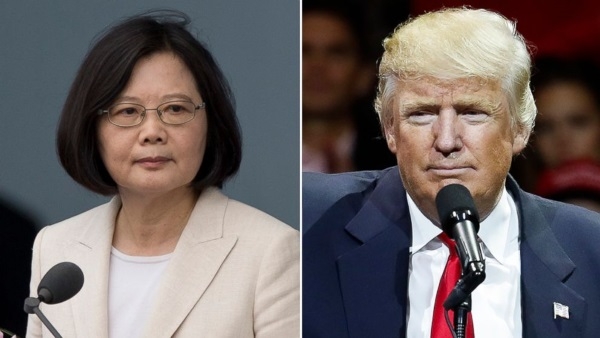US Approves Potential Sale Of 100 Harpoon Anti-ship Missiles To Taiwan
Total Views |
Washington, October 28: The tension between the U.S. and China has been soar even higher as the United States on Monday announced that the Trump administration has approved a $2.4 billion sale of 100 lethal Harpoon coastal defence systems to the Island nation

The deal involves 100 Harpoon Coastal Defence Systems, which include 400 RGM-84L-4 Harpoon Block II surface-launched missiles with a maximum range of 120 kilometers. The missiles, made by Boeing, can be placed on fixed platforms or mounted on trucks.
.@StateDept authorizes a Foreign Military Sales #FMS case for @TECRO_USA #Taiwan for up to 100 Harpoon Coastal Defense Systems and related equipment valued at up to $2.37 billion #FMSUpdate- https://t.co/KRk4rQyNMd pic.twitter.com/jVle0UxBtk
— Political-Military Affairs, US Dept of State (@StateDeptPM) October 26, 2020
The new Harpoon anti-ship missiles are intended to be launched from ground-mobile launchers, adding to Taiwan’s arsenal of air and submarine-launched Harpoons from earlier sales.
“The United States maintains an abiding interest in peace and stability in the Taiwan Strait and considers the security of Taiwan central to the security and stability of the broader Indo-Pacific region,” the State Department said in a statement.
The department said in a statement that the proposed sale serves the national, economic, and security interests of the US by supporting Taiwan’s efforts to modernise its armed forces.
The proposed sale will help improve the security of the recipient and assist in maintaining political stability, military balance, economic, and progress in the region,” the statement further read.
Taiwan thanked the U.S. for the latest arms sale in a statement posted Tuesday on the Presidential Office website. Taiwanese President Tsai Ing-wen's office has also expressed confidence that the sale would "upgrade asymmetric warfare capabilities" of the Island nation which the Jinping led Chinese Communist Party (CCP) claims as Chinese territory in entirety.
It came after the US on Wednesday approved the $1 billion sales of 135 precision-guided, air-launched AGM-84H SLAM-ER cruise missiles after which china impose sanctions on Lockheed Martin, a Boeing defense division, and other US firms involved in the arms sale.
Beijing has increased diplomatic and military pressure on Taiwan since the 2016 election of President Tsai Ing-wen, who regards the island as an independent. Chinese Foreign Ministry spokesman Zhao Lijian said the sanctions were to protect national interests" and would apply to those who "behaved badly in the process of arms sales to Taiwan".


